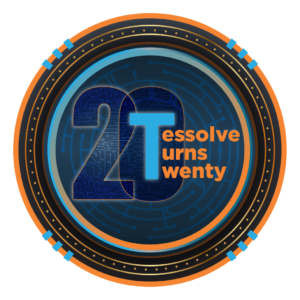In today’s world, semiconductor technologies have the most significant impact on our daily lives. As with engineering products, semiconductors have two parts: the designing aspect and the manufacturing or production part. Both the aspects are coordinated, planned, and organized by VLSI & Embedded engineers all across the industrialized countries in different time zones of the globe for making rapid progress in the field throughout the day.
Likely, India is not an essential contributor to the semiconductor manufacturing sector, but on the other hand, India contributes significantly to the VLSI design sector across the globe. Indian VLSI & Embedded engineers play an essential role in designing VLSI systems for the semiconductor industry.
One of the major factors leading to the remarkable development in the VLSI design sector is the establishment of higher education institutions, including IITs/IISC and other premier institutions, imparting knowledge across the country’s different states. Investing in education will significantly pay off in the future.
Many of them devote themselves to developments in the semiconductor sector, leading to significant advancements in the industry. During the 1980s, most electronics engineers joined premier companies and labs such as Bharat Electronics Ltd, Semiconductor Complex Ltd, the Indian Telephone Industries, etc. They were active in the VLSI design and manufacture in India. Many important private and government companies also marked the industry by planning remarkable strategies and meeting core industry needs while manufacturing indigenous computer systems. Many highly-skilled engineers migrated to foreign countries such as the United States and reached positions of prominence in leading tech companies. The first foreign semiconductor operations center in India was established in Bengaluru in the year 1984 and is known as Texas Instruments. In the following years, multiple talents came together to build a robust infrastructure in the semiconductor industry, VLSI design or silicon design industry, and Indian VLSI & Embedded engineers played a significant part.
What is VLSI?
VLSI or very-large-scale integration is the process of embedding or integrating millions of transistors on a single microchip of silicon semiconductors. The process is of much importance in the contemporary world as it helps build big, more complex chips and memory devices and is utilized in microprocessors and microcontrollers.
The global revenue in the semiconductor sector had crossed USD 440 in 2020, and there has been an increasing demand for producing highly efficient chips that can run advanced modern-day technologies, such as IoT, AR/VR, Cloud, AI/ML, and so on, which are becoming important with every passing day. Growth in consumer electronics, smartphones, computing devices, and other devices has enhanced demand.
Importance of VLSI in Modern Days
VLSI is significant because it is convenient for compact design. It consumes lesser power when compared to a discrete parts circuit, and VLSI can be used for different functions.
Uses of VLSI
- Sophisticated algorithms can be performed with very little energy by personal entertainment systems.
- High-definition data videos can be compressed and decompressed smoothly in consumer electronics.
- Despite a specified function, low-cost terminals require complicated electronics for web browsing.
- Personal computers and workstations need central processing units and specialized hardware for financial analysis, word-processing, and games.
- Body functions and other complicated algorithms can be measured through electronic medical systems, and problems can be detected. To identify these complex algorithms, more sophisticated systems are required.
Advantages of VLSI
- Minimizes the size of the chips and products.
- Enhances the performance and speed of circuits.
- Makes the devices cost-effective.
- More reliable.
- Consumes less power than Discrete components.
- Consumes little space.
Contributing Factors to the Improvement in the VLSI Design Sector
-
- Rise of MNCs
The establishment and expansion of multinational companies increased India’s importance in engineering operations. The list of industries is long, and VLSI & Embedded engineers significantly contribute to the brands. - Strong Engineering Services Sector
The business solutions offered by the engineering industry has provided immense flexibility in designing VLSI embedded systems. Although it began as staffing in T&M mode, most successful companies initiated outcome-based project execution, thus sharing greater product design and operation authority. - Expansion of VLSI Education
Many universities have introduced VLSI in the curriculum of fresh graduates. Though the quality of graduates varies, they become productive in a short duration with proper training in the industry to be inducted into the workforce. - A Wide Range of Companies
Many companies have established their design and development centers in India. Intel, Texas Instruments, NXP, Rambus, Qualcomm, Cadence, Synopsys, Mentor Graphics, and Siemens. They have contributed significantly to developing a wide range of products, and their application engineering services improved their competency. - Training Centers
These centers are run by professionals with experience and impart knowledge and skill to passionate engineers who are eager to grab the lucrative opportunities of VLSI design. - Expansion of Operations Across Countries
A lot of work in the semiconductor industry is happening across Bangalore, Hyderabad, Ahmedabad, and Delhi-NCR region. There are high chances that the activity may spread to the other regions. - Final Words
The impact of the VLSI Design ecosystem has been experienced in the past few years. The resonance in hardware design establishments has noted that the proposals of businesses without an engineering design operation were given no consideration. VLSI will continue to power electronic advancement with the endless demand for devices with compact sizes, high performance and functionality, and reliability. The number of job opportunities in India is also expanding rapidly, making designing VLSI embedded systems an attractive career.
- Rise of MNCs
For better assistance from our experienced engineers, email us today sales@tessolve.com



